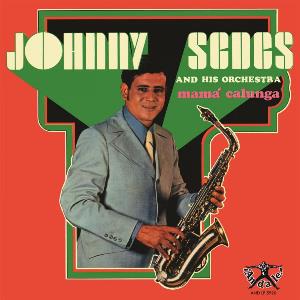The record starts off at a fair pace and never dips; opener Carupano Canta is a total rush and looks to plays up the metropolitan feel that recording in New York has undoubtedly added to this recording.
The record starts off at a fair pace and never dips; opener Carupano Canta is a total rush and looks to plays up the metropolitan feel that recording in New York has undoubtedly added to this recording.

Now I’m absolutely no expert on this writing about kind of music, though I’ve got a lot of Son and Cumbia LPs kicking about the house. Though I love sticking them on and shuffling around the flat to them, Incendiary doesn’t really have a long track record in reviewing Latin records. Still; this one really got to me, as it sounds very different to a lot of the mambo or desgara I’ve heard before. It sounds utterly charged; even in the bits where the Latin elements really start to set the agenda, as on Dos Cascabeles or the old warhorse El Manicero, which sounds like it’s getting psyched out at times. I mean, I really hope this doesn’t sound stupid but at certain moments there are very, very noticeable elements of Fela Kuti or early Funkadelic in this record. There’s a space created just off the beat that adds to this very un-traditional take guajira say; the Guajira Dancers sounds so loose and raw on this recording and how spaced out is Acere Voz Quiere?
The record starts off at a fair pace and never dips; opener Carupano Canta is a total rush and looks to plays up the metropolitan feel that recording in New York has undoubtedly added to this recording. Especially in that sax break that blurts and squeals in the mid-section, almost mocking the metropolitan setting. And maybe that is what makes this a great record; the urban feel. Sleeve notes tell me this album was recorded in New York in 1969; so Sedes seems to deliberately set up a real clash of two attitudes; two different worldviews that both seem to play up the hedonistic, ‘sons of the stage’ element. Sedes seems to be making the point that the backwoods lads are in town to show the urban artholes they’re no longer setting the agenda. La Verdad is possibly the best track on here, at once bug eyed and utterly determined in having a good time; and boasting a brilliant repeated break that just kicks the whole track up a few levels. The title track is pretty shit hot too; repeating the same rhythm at a dizzying and ever-so-slightly-escalating pace. Things only come to a resounding halt with “last waltz before the lights” Te Vas Bolero. Which is only fitting.
A classic Fonseca reissue. And if I was to get any of these reissues I reckon this would be the one. It’s raw.

